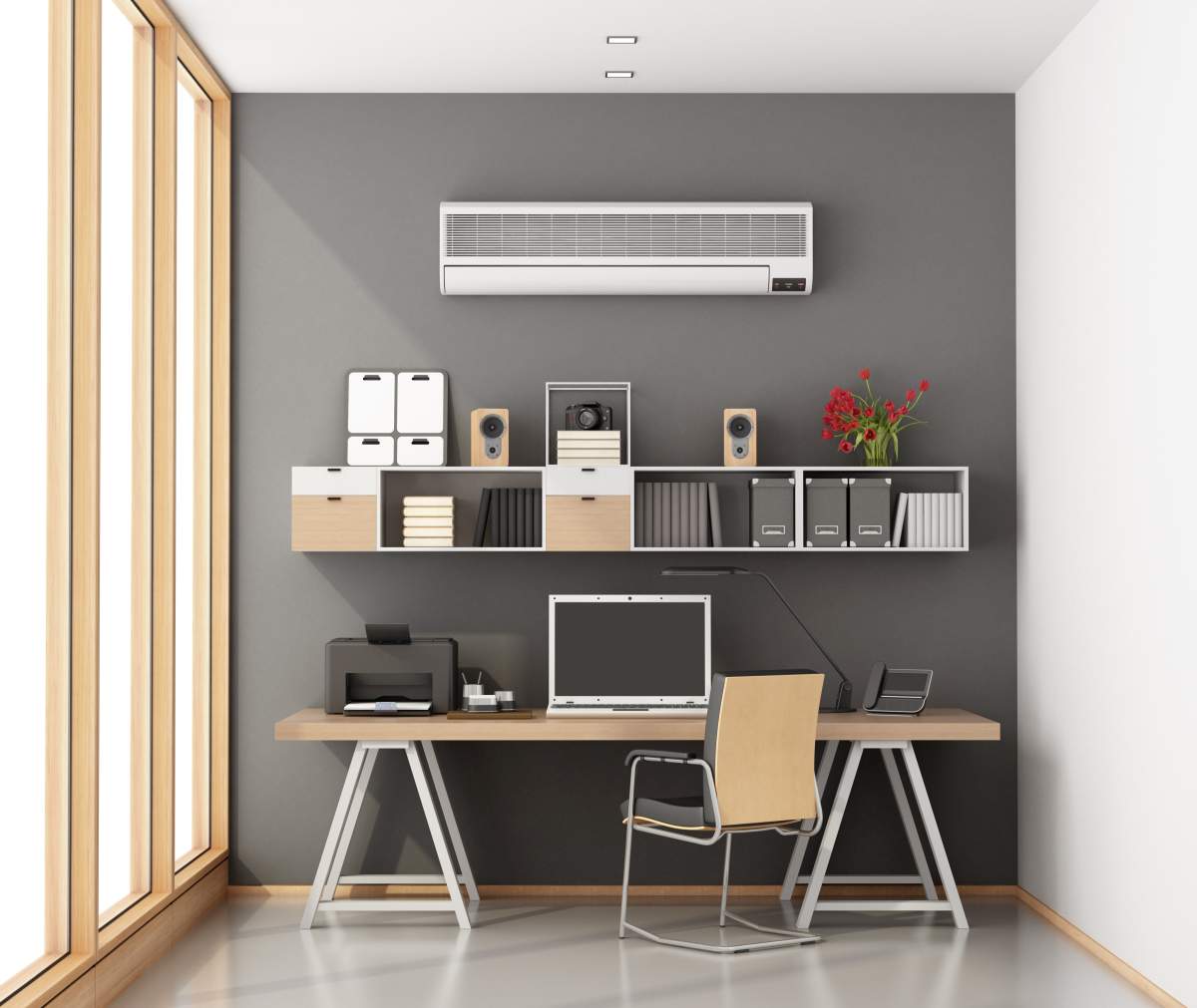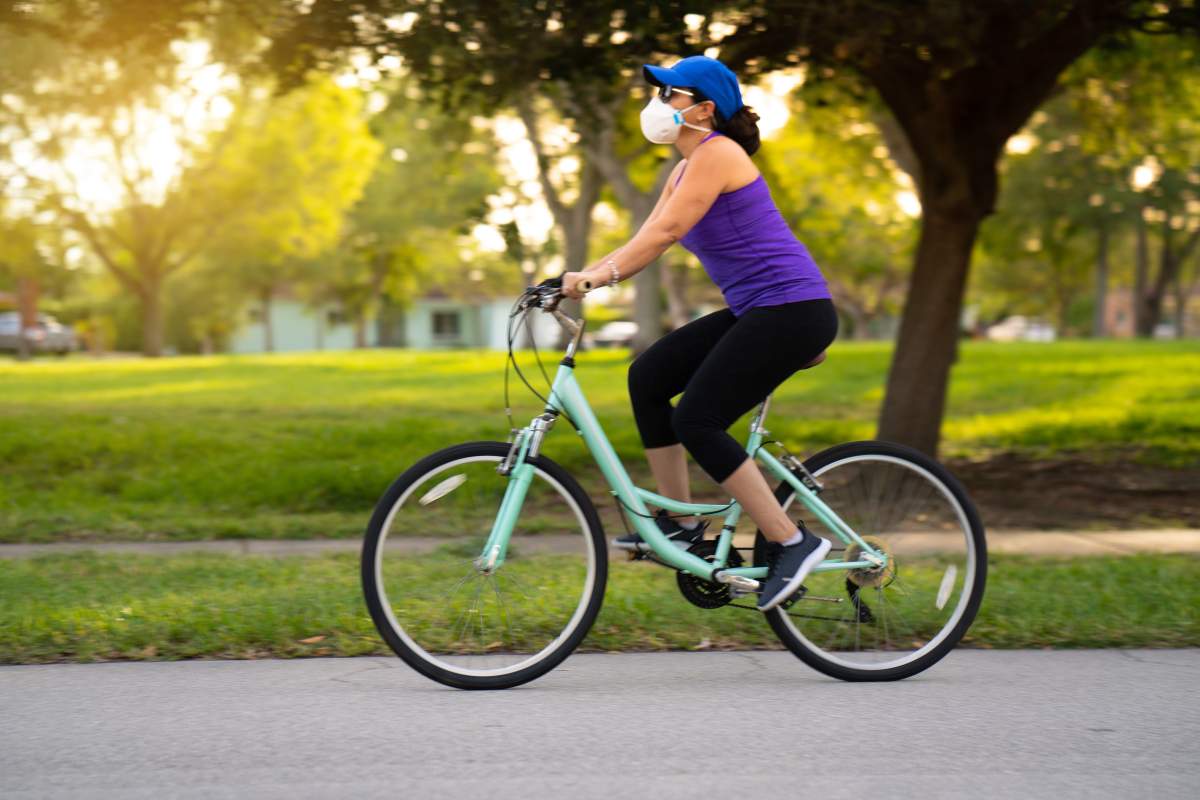As the novel coronavirus pandemic stretches into June, Canada — along with much of the rest of the world — is headed for an unusual summer. But it doesn’t have to be a miserable one.

Whether you are working from home or spending time outside, here are a few ideas to spice up the hot season this year:
An air conditioner
Whether it’s a window unit or something fancier, an air conditioner may become a must-have this summer. Adding one to your makeshift home office is guaranteed to make working from home a lot more bearable as temperatures rise. And if you’re hanging with the kids, cooler temperatures may help maintain cooler tempers — a win for the whole family.
Patio furniture
Even condo dwellers may want some patio furniture this summer. A couple of foldable chairs and a table are all you need to enjoy breakfast outside or catch the cool evening breeze on your balcony.
A WiFi booster
Once you’ve got your outdoor space outfitted, why not move the home office there at least for part of the day? If you’re contemplating suntanning as you type, you may need an outdoor WiFi booster to extend your signal.
A hammock
There’s work, and then there’s napping. Hammocks may not be very common in Canadian backyards, but that seems poised to change. Google searches for summer are off the charts this summer — and with good reason.

Get weekly money news
A trampoline
Every parent knows this: if you want some peace and quiet, the kids must be entertained. A trampoline does the job nicely. Bouncing fun for the children means you may actually get to make coffee and enjoy it while it’s warm.
A bike
From Calgary to Montreal, many cities are closing down roads or restricting car traffic on major pathways over the weekend to make more space for pedestrians, joggers and cyclists. If you live in an urban area, chances are, there’s never been a better time to own a bike.

How to spend without regret
There’s nothing wrong with spending a little money to improve your summer work-from-home or staycation experience, says Karen Richardson, a Kenora, Ont.-based financial planner at Spring Financial Planning who specializes in cashflow management.
Many Canadians are finding that they’re spending considerably less amid the pandemic, as the car sits in the driveway and every single meal happens at the dinner table, Richardson notes.
“I do hear from my clients that there’s money in the bank,” she says.
READ MORE: Booking or changing a flight? Here are the rules for major Canadian airlines
It’s perfectly fine to spend some of those extra funds for purchases that make living with COVID-19 restrictions a bit more fun, she adds. The key is to spend “in a conscious way,” knowing how much you can afford and thinking about what will really get you the most mental health bang for your buck, Richardson says.
The first step is to assess what one could call your “COVID surplus.” How much exactly are you saving every month thanks to your new lifestyle?
Once you’ve tallied up your extra savings, Richardson recommends setting up a separate bank account devoted entirely to, if you will, “COVID fun.”
READ MORE: Where to buy face masks online in Canada and how to choose
Setting up automatic transfers into your fun fund allows you to easily keep track of how much money you can devote to amenities without fumbling with spreadsheets or worrying about overspending.
It’s a good idea to “try and build up the surplus in there because it’s very visual,” Richardson says.
But you may also want to put some of the extra money into an emergency fund, she added. That’s especially true if you don’t already have a cash cushion that can cover several months of living expenses.
If you’re eligible for Employment Insurance or workplace disability coverage, you only need to rely on your emergency fund as a top-up that would allow you to cover your bills and essential routine expenses, she adds.
Richardson recommends having enough cash to carry you through at least three months of unemployment or disability, although you may want to plan for more amid the current economic crisis.
READ MORE: Six reasons you may want to change your investment strategy amid COVID-19
If you don’t have any emergency cash stashed away, Richardson advises using government lump-sum transfers or unused vacation money to kick-start your rainy-day fund.
Ottawa’s recent one-time top-up of the Canada Child Benefit, for example, “could be a good head start to an emergency fund,” she says.
Richardson, however, advises against relinquishing all your unused vacation funds or extra savings. While you may want to prioritize the emergency fund, cutting all the fun out of your life is unsustainable over the long run, she warns.
When saving, just as with food, it pays to be measured, Richardson argues.
“We can not eat the bag of chips for a couple of months,” she says. “But then when we go and eat the bag of chips, we’re going to eat five.”
In the long run, buying that hammock may help you stick to your savings goals through the COVID-19 summer.
















Comments
Want to discuss? Please read our Commenting Policy first.